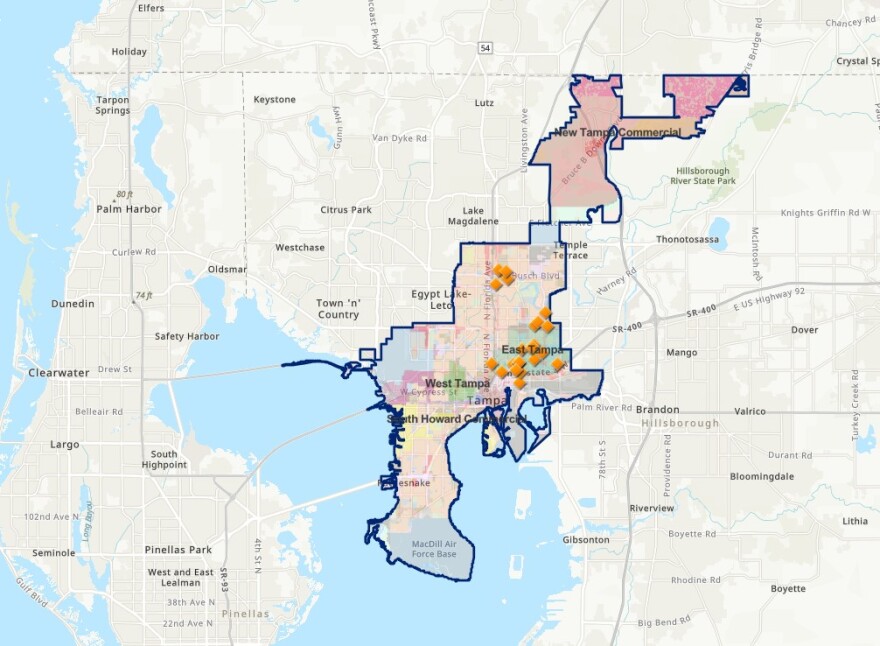In its first month online, the city of Tampa’s affordable housing dashboard has garnered interest from private developers.
“The engagement is there — the wheels are turning with the private sector, trying to figure out the different projects that could happen as a result of this tool,” said Nicole Travis, the city's leader of economic development.
The dashboard, which went live on June 29, allows users to toggle between the 27 city-owned lots that are earmarked for affordable housing development. The interface will take no more than two weeks to be updated when the city acquires new land, according to Travis.
VIEW MAP: City-owned lots available for affordable housing
Travis said the idea behind the project was to create “a good interface for the private sector to do business with the local government.”
Working with private developers
She said it’s one way Tampa is trying to bolster its affordable housing supply — in this case, through striking deals with private developers.
Travis said this is an especially effective strategy as the Live Local Act, a pro-housing law made effective on July 1, has made it more financially attractive to build affordable housing in Florida.
Developers interested in purchasing the city-owned land should contact Tampa's real-estate division, according to the news release. City law also requires a Request For Proposal (RFP) to be issued for the land before a developer can be selected.
So far, Travis said the dashboard has been successful in starting conversations with private developers and contracting companies. In particular, the city has seen a jump in calls from smaller firms based in or near the Tampa Bay region.
“Actually, the interest that we have been seeing is mostly from smaller developers, people that don't normally take on larger-scale projects,” Travis said.
But, she added, the true measure of success will be how many projects can break ground.
“It's one thing to have conversation and interest, and then it's another thing to act on it and actually have development projects come out of this,” she said.
Dashboard will help track units
In late September, Travis said the city has plans to launch a housing dashboard that plans to track these development efforts — something that the city of St. Petersburg did earlier this year.
VIEW MAP: St. Petersburg's affordable housing developments
In March, in a joint effort with the St. Petersburg Downtown Partnership, the city published a comprehensive housing dashboard that tracks planned and existing affordable housing projects side-by-side.
According to the website, there are currently 42 workforce housing units underway and another 345 planned, as well as 465 affordable housing units being constructed with another 1,027 units planned.
Mirroring this approach, Travis said a dashboard to track affordable and workforce developments in Tampa is the next step in the city’s ongoing efforts to address the housing crisis.
Gabriella Paul covers the stories of people living paycheck to paycheck in the greater Tampa Bay region for WUSF. She's also a Report for America corps member. Here’s how you can share your story with her.





